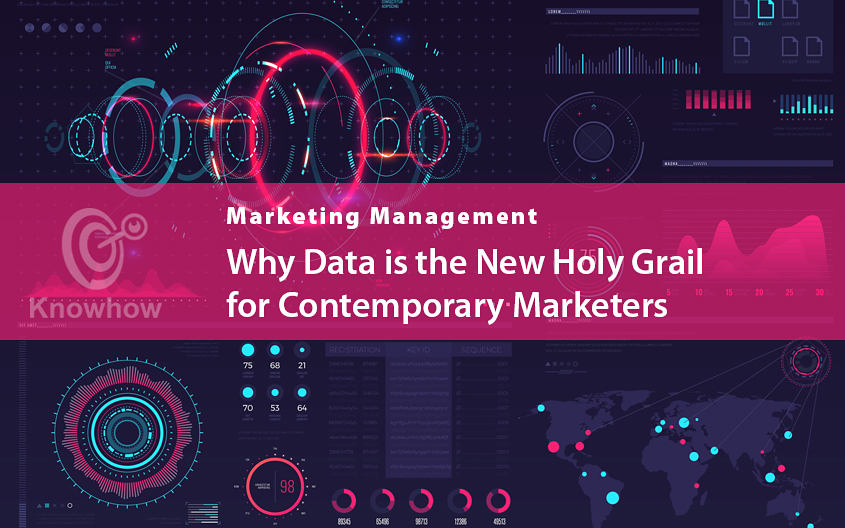
If you’re online reading this, then you must have an account on at least one social media platform. If you’re an avid internet user, then you’re most probably also using at the very least several different apps. And you’re giving away incredible volumes of information about yourself to every single one of these platforms and applications.
When you come to think of it, we don’t just give away our basic info like gender, age, and phone number; we also let these online services know all about our likes and dislikes.
We all want apps customised to our liking, but we rarely think about all the data we give in exchange. Most of us don’t mind linking our personal profiles on Instagram, Facebook, or Twitter to apps and services. We absent-mindedly allow permissions to access our profile info as well as our contact lists. However, we draw the line at allowing those apps to post on our behalf, but everything else is perfectly acceptable.
Even our social media likes and comments leave a digital footprint that’s stored somewhere as another piece of useful data about us.
Now take a moment and ponder on this — where does that data end up?
Everything we do online gets stored by the platform or service we do it on, or through. Facebook, Instagram, Google, Twitter, LinkedIn — they are all free to use because they are earning on their user’s data. That’s right, none of these companies are altruistic by nature, they just found a way to provide their services free of charge to the public while earning from it. That’s why they try so hard to keep our interest, that’s why they take care of user satisfaction, and that’s why they are so successful. They found a way to successfully earn from marketers by giving them what they need the most — a simple way to reach their target audiences.
Digital Footprints Are Marketing Goldmines
As Rumplestiltskin would say, “All magic comes with a price” and so does having an online presence. The digital footprints we leave behind while using our favourite websites, platforms, apps, and services are an incredible tool for marketers. By using advanced analytics and Big Data tools, marketers are able to “mine” the data we all leave behind to target and segment their audience.
Basically, every internet user contributes to creating an online data goldmine of personal data for marketers to use. We are helping them sell their services and products to us.
Every social media website and every app is selling our data to marketers. They aren’t selling our personal information like names and addresses. However, they are helping segment and target us in a way that helps to market products, services, and brands.
Data — The Marketers’ Holy Grail
When you consider all we’ve mentioned above, it’s no wonder data is the new Holy Grail for marketing experts all over the world. It allows them to position their services and goods right in front of people who are most likely to buy them.
Did you know that even the most basic data is enough for marketing experts? They can gather enough information about our location, age, gender, vocation, and income and direct relevant ads at us.
In addition to that, once we leave a digital footprint, marketers are able to fine-tune their ads. They can even predict our future consumer behaviour to a certain extent.
Companies like Amazon and Aliexpress have already implemented smart prediction algorithms into their websites. They can predict some of our future interests based on our current and past ones. That’s how they know exactly what to offer us, which products from which manufacturers. Now that they have started the trend, others are guaranteed to follow soon enough.
How Mass Marketing Turned into Super Customisation
Not so long ago, mass marketing was what everyone was doing. Advertising was being segmented based on very broad psychographic and demographic data.
TV, radio, and newspaper ads were aimed at broad audiences because precise targeting was virtually impossible. However, that all changed when the Internet came to be. Its arrival enabled a huge leap in ad customisation and completely altered the marketing game.
And then, when the smartphone evolution took place, everything changed once more. Marketers got new tools and more access to their target audience than they have ever dreamed possible. You can now pinpoint a single person in a single city and market your product or service to them. It doesn’t matter how specific your product is; you are sure to find people interested in it.
But What About the Ethics of It?
The way we live our lives and shop does come with certain ethical implications. More and more consumer protection groups appear nowadays. They are preparing themselves to take on Big Tech companies on issues such as consumer profiling, algorithm targeting, and placing so much power in the hands of tech giants and the marketing industry.
If you view it from their angle, it is possible to abuse these new technologies and possibilities. That could, in turn, result in information misuse from which billions could suffer.
In the End
Data is a double-edged sword. So the best thing you can do is be careful what you do online and on your smart devices. Be mindful when you’re giving permissions to apps and platforms, read the fine print, and make sure to set your privacy settings so that you have control over your personal information.
Big Data comes with great possibilities for both positive and negative use. It’s up to consumers and marketers to influence onto which side the scale will tip, and how Digital Marketing will develop from this point on.
Related content:
Marketing Management Knowhow – learn more about marketing with our collection of educational articles.
From corporate branded tote bags, logo printed pens, promotional mugs, water bottles, eco-friendly giveaways, clothing, notebooks, here at GoPromotional we believe that you are sure to find the perfect products to help successfully market your brand.
If however, you require further information or have any specific questions, don’t hesitate to give a member of our experienced team a call on 0800 0148 970 or simply email us today.






